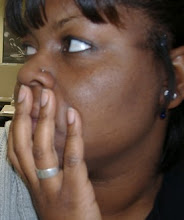With the job market still being tight, I would like to offer a few helpful pointers in submitting resumes to companies for a specific position. I have gotten quite a bit of feedback from other professionals in several fields on resume and cover letter writing tips. In my current venture into summer hiring frenzy, these tips come as I come across some of the worst mistakes in resume writing.
Do not use crazy fonts in your cover letter, e-mail or resume. It is hard to read script fonts or curly, italic fonts, and can be frustrating to someone who is trying to gauge your qualifications. It is best to stick with typewriter fonts such as Times New Roman, Courier New, Georgia, or even Arial, Microsoft Sans Serif, Lucids Sans, Tahoma or Verdana.
Save your resume in universal formats.Resumes should always be in Microsoft formats, in the oldest possible version. Microsoft Word 97 is best, as some users may have MS Office 2003, or even 2000. Not everyone has transitioned to Office 2007, and if you are using it, they will not be able to view your file. Do not use .wps, .wpd (Microsoft Works Processor), or .txt (Notepad/Typepad)formats. Very few people can read these, and .txt formats have no wrap-around function and your text goes all the way across the page.
It is a good idea to save your resume in several formats just in case, so you do not waste time reformatting it for various companies.
BCC other companies that you e-mail your resume to.. Leaving all addresses viewable sends the messagage that you are desperate for work, and also says that we are each in competition for your employment.
Use a professional or simple e-mail address. It never looks professional to send a resume from "hotgrrl504 at yahoo". This sends the message that you are immature, not concerned about having a professional appearance and are not concerned with the espectations of the business world.
Update your 'objective' field for each position you apply for. This reflects laziness and also, if your experience is in a different field than you are applying for, it can relay a message that you are just using this job as a stepping stone to your career and you do not plan longevity in this position.
Also, don't leave it as generic as "To obtain a position in your organization". Based on what may follow, it may seem that you don't care WHAT job you get, just that SOMEONE hires you.
Have someone proofread your resume. It is very easy to overlook your own mistakes, and they may also be able to help you re-word some common terms and phrases.
Update regularly. Make sure that not only your work and education history are current, but also your contact information!
List only your relevant work experience.If you apply for a job as an accountant, a hiring manager doesn't necessarily need to know that you worked at a daycare center while you were in college. Listing the jobs that have comparable skills but in different fields is useful, but cluttering up page after page of irrelevant information is not.
Don't expect a reply right away. A hiring manager or HR person may be weeding through tens of resumes and may have a lengthy process for finding qualified applicants. If you receive a "thanks but no thanks" reply, do not call or write back asking why you are not qualified. If you do receive a positive response, still allow a few days before sending a follow up call or e-mail. Much like dating, it makes you look desperate!
It is always helpful to searh help online for more tips at sites like these:
http://www.resume-help.org/
http://jobstar.org/tools/resume/index.php
http://hotjobs.yahoo.com/resume
Please, also feel free to comment with any field specific tips, ie for lawyers, phlembotomists, research jobs, non-profit, etc. Every tip helps!





This comment has been removed by the author.
ReplyDeleteIronically enough, I posted this two months before I got laid off :) Every little bit helps!
ReplyDelete